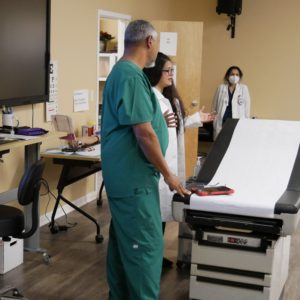[vc_row][vc_column][vc_column_text]There are powers inside of you which, if you could discover and use,
would make you everything you ever dreamed or imagined you could become.
Orison Sweet Marden
Have you ever questioned, how a group of students entering into a course of study, all on an equal footing, can have differences in outcomes? Specifically, meeting the requirements that the learning institute has set out as requirements for admission. This same group of students are exposed to the same educational platform. Essentially, they are required to attend the lectures in the course given by the same professor, complete all the same assignments, given equal time of study and take the same exams to successfully pass the designated course. Yet despite the commonality of the platform, some students excel, some pass and some fail. One would question possible explanations; is the difference in outcomes a result of different intellectual capacity of each individual student, is it a result of some students working and studying harder than others, or possibly each individual’s test-taking abilities?[/vc_column_text][vc_row_inner][vc_column_inner width=”1/2″][vc_column_text]Cognitive studies have demonstrated the IQ (Intellectual Quotient) does not perfectly measure intellectual ability. Metacognitive research has also shown that people with the same innate or latent ability can potentially have different IQ’s and that some measurement bias exists in the test. Performance has been related to a student’s motivation; wanting to do well on the test and believing the test matters.
In my experience, having worked in multiple higher learning institutions, having pontificated and pondered on the differences in student’s outcomes; it has become apparent to me that one salient differentiator is the students reading ability. Reading does alter the mind, as Gwiazdowski suggested; it allows students to build their crystallized intelligence.[/vc_column_text][/vc_column_inner][vc_column_inner width=”1/2″][vc_single_image image=”44464″ img_size=”full” alignment=”center”][/vc_column_inner][/vc_row_inner][vc_column_text]Crystallized intelligence is all of the factual knowledge, the figures and data, that a person knows. The more you read, the more you are able to add to your bank of information. As a physician, you are expected to have acquired a vast volume of knowledge that has come from years of study, experience and self-directed learning acquired through reading and study.[/vc_column_text][vc_row_inner][vc_column_inner width=”1/2″][vc_column_text]Dr. Cunningham from the University of California, Berkeley has authored, “reading has cognitive consequences that extend beyond its immediate task of lifting meaning from a particular passage. These consequences are reciprocal and exponential in nature. Accumulated over time – spiraling either upward or downward, they carry profound implications for the development of a wide range of cognitive capabilities.”
I have come to learn, that on a national basis, the schools with the highest scoring on national exams, such as the USMLE or COMLEX have course requirements related to the course textbook as well as the lectures presented to students.[/vc_column_text][/vc_column_inner][vc_column_inner width=”1/2″][vc_single_image image=”44466″ img_size=”full” alignment=”center”][/vc_column_inner][/vc_row_inner][vc_column_text]When one considers that lectures often presented in power point format are created by professors who determine learning objectives for the lecture and the course. These objectives although well intentioned can be biased, in that the learning objectives may differ from those tested on a national exam? The majority of time, students can pass course exams by studying the power points and handouts distributed by the professor. However, anecdotally, I have learned that performance on these national exams is improved when studying course material, involves not only the lecture materials, such as the power points given in the course, but also studying the chapter(s) in the assigned textbook for the course. National exams are tied to core textbooks for the course, and that students who desire to perform well on these exams should read textbooks on the subject matter being tested.[/vc_column_text][vc_row_inner][vc_column_inner width=”1/2″][vc_single_image image=”44467″ img_size=”full” alignment=”center”][/vc_column_inner][vc_column_inner width=”1/2″][vc_column_text]There is great variation in the manner in which students are taught in undergraduate medical curriculums throughout the country. However, the common denominator for test takers, no matter which curriculum they studied from; is the standard textbooks assigned and utilized.
Bottom line, when preparing for National exams study from the appropriate textbooks for the course materials being tested. For example, anatomical study would be related possibly to Grants, Grays, or Snell’s anatomical textbooks; in addition to lecture notes.[/vc_column_text][/vc_column_inner][/vc_row_inner][vc_column_text]Many students rely on review books such as First Aide, that are summary texts. These books are helpful in providing overviews in high yield topics, however, national exam test questions are not taken from these texts, but the core authorative texts on the subject. Furthermore, cognitive studies have also demonstrated that improvement in outcomes can be enhanced by taking a reading course, that emphasizes speed reading as well as comprehension.
Don Penney MD.
Provost, AUIS School of Medicine.
Dean Clinical Affairs[/vc_column_text][/vc_column][/vc_row]


